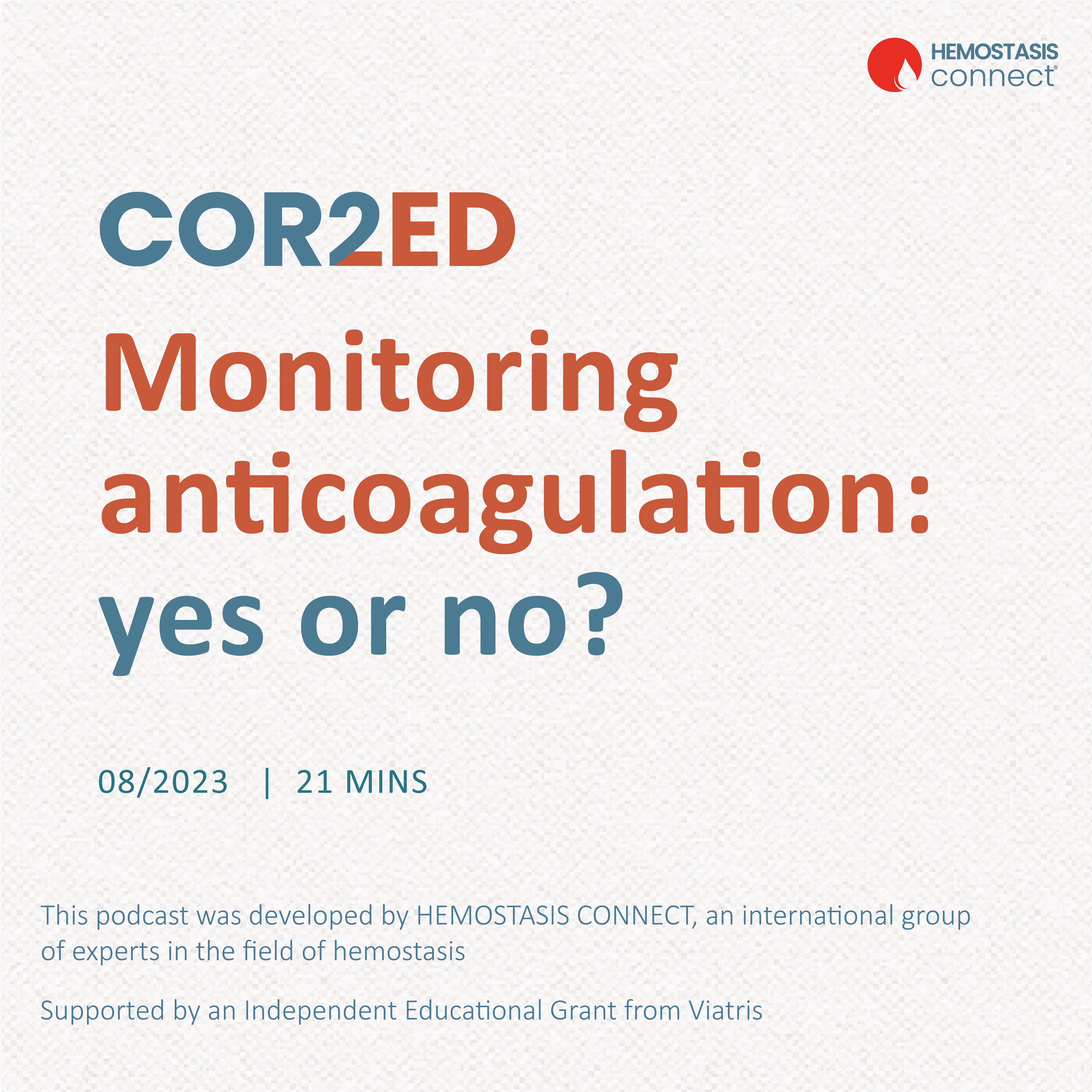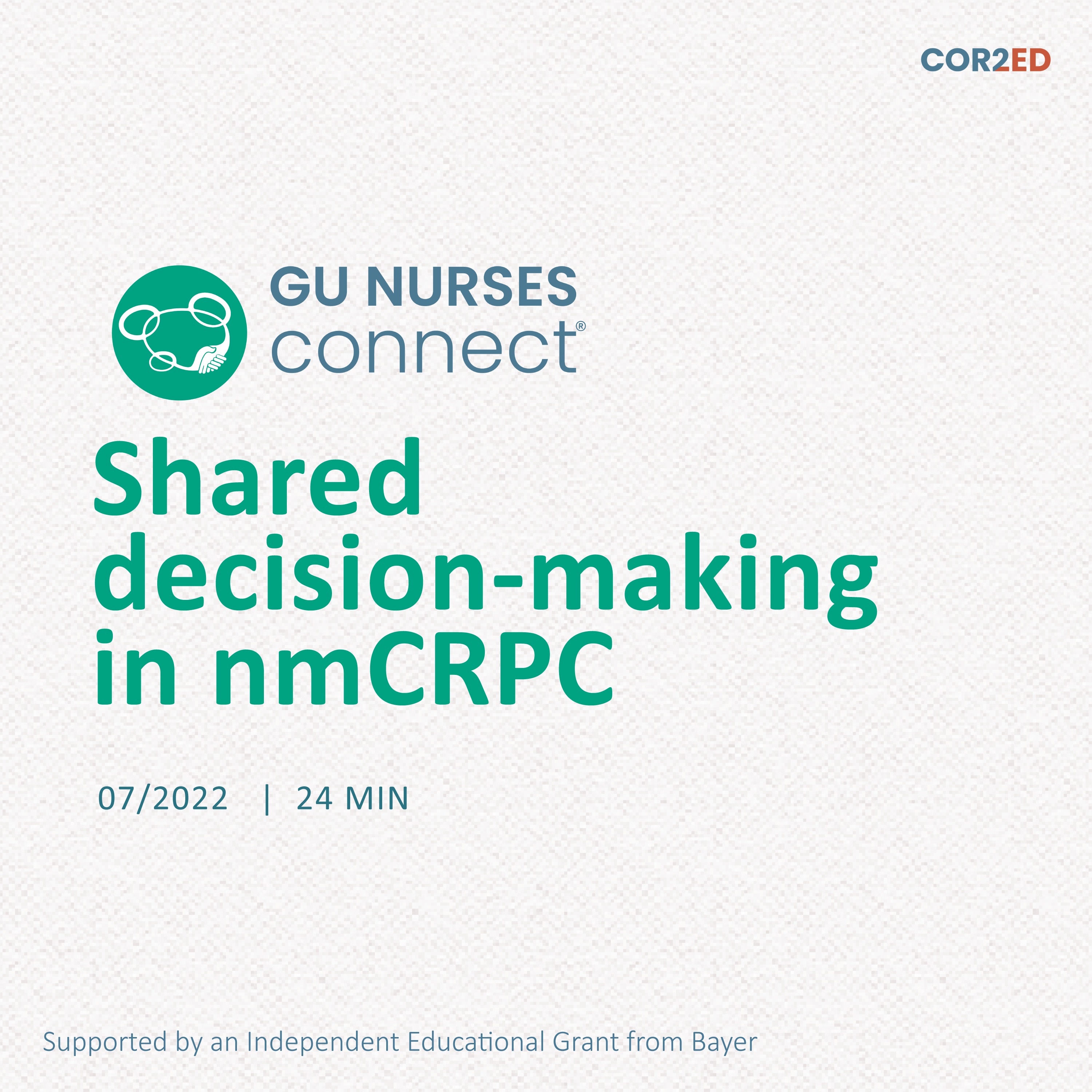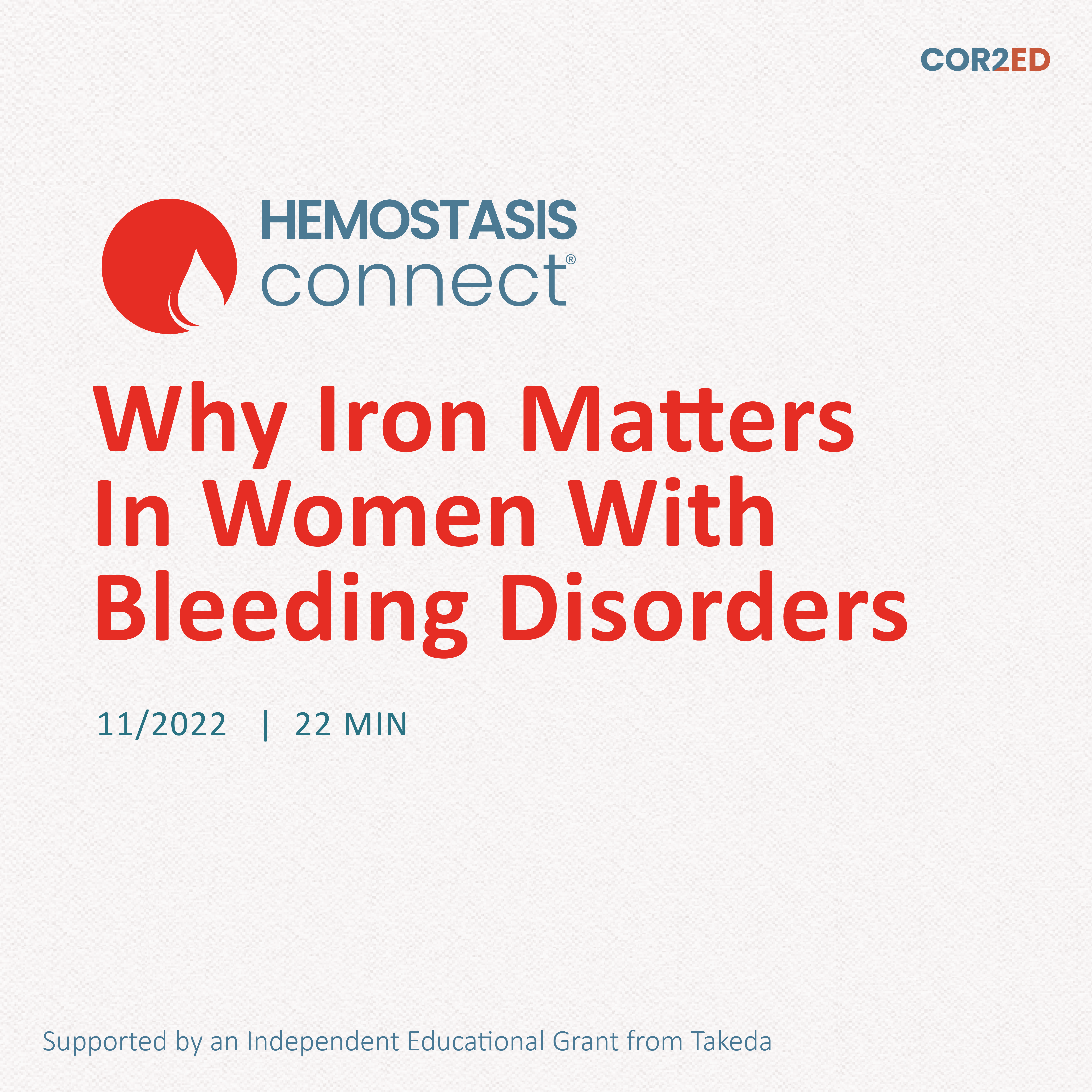In this third episode of the podcast series Women and Girls Bleed Too, Advanced Nurse Practitioner Debra Pollard (Katharine Dormandy Haemophilia and Thrombosis Centre, Royal Free Hospital, London, UK) is joined by Haematologist Dr. Michelle Lavin (RCSI and National Coagulation Centre, St James’ Hospital, Dublin, Ireland). They talk about the impact a bleeding disorder can have on the lives on women and girls and how these patients can and should be supported in first- and second-line care.
When thinking about management, many healthcare providers will first consider medical treatment. Dr. Lavin gives a brief overview of the first-line treatment options for women and girls with bleeding symptoms. However, the speakers stress that the management of these patients goes beyond medical treatment options alone. They provide practical tips and recommendations for first-line healthcare professionals when they treat a patient with a bleeding disorder. As many bleeding disorders are hereditary diseases, a diagnosis not only has impact on the patient, but on their family as well. A bleeding disorder also impacts family planning, pregnancy, and quality of life. Medical and psychological support is essential throughout life.
Finally, Michelle Lavin and Debra Pollard discuss some important topics for first-line healthcare providers to be aware of when they have a woman with a bleeding disorder in their practice, including the impact of a bleeding disorder on any medical invention, such as surgery, dental procedures or infertility treatment, but also on the use of pain medication.

COR2ED Medical Education: In this podcast episode, Prof Dimitrios Tsakiris (Haematologist, Basel University, Switzerland) and Assoc. Prof. Michael Nagler (Haematologist, Inselspital University Hospital, Bern,...

Shared decision-making in nmCRPC: Treatment considerations to maintain quality of life COR2ED Medical Education: Brenda Martone, a nurse practitioner at Northwestern Medicine in Chicago...

COR2ED Medical Education: In this podcast, Haematologists Dr Michelle Lavin and Dr Roseline d’Oiron discuss the importance of recognising and correcting iron deficiency in...